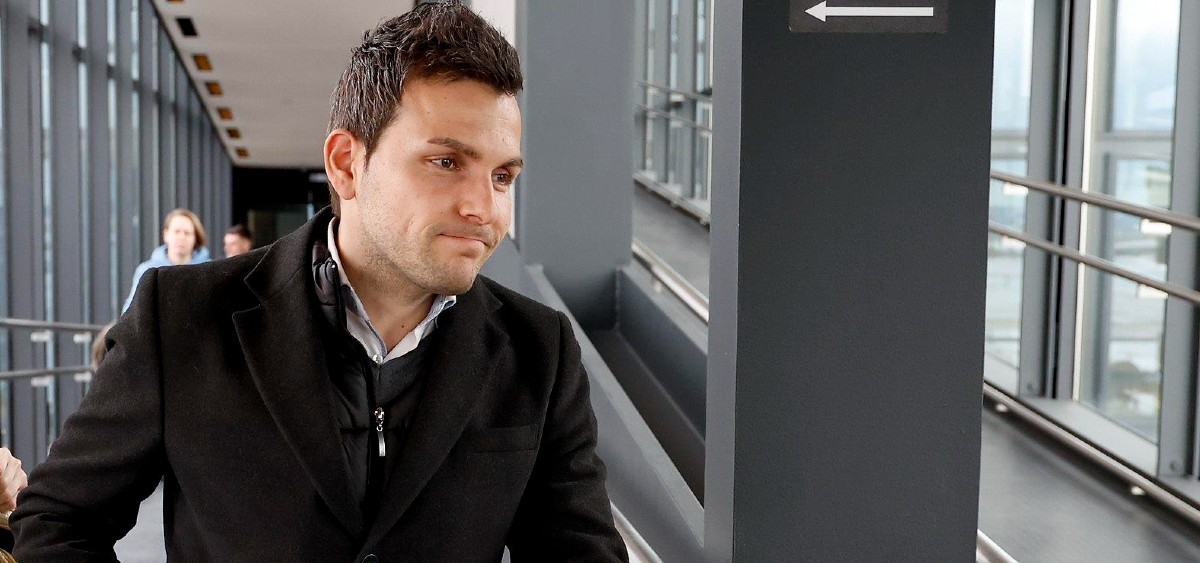More and more threatening language is coming from Russia towards future NATO countries Sweden and Finland. At the same time, the country is conducting new nuclear tests and wants to move nuclear weapons west towards Belarus. International politics professor David Krickmans (UAntwerp/KU Leuven) warns of a chain reaction.
Russia describes Sweden and Finland as “legitimate targets for retaliation” if they join NATO. How seriously should we take that?
This is essentially rhetoric, intended to make clear to their public opinion that they will not allow entry into the Western Coalition to pass easily. However, this shows a lot of frustration: Russia did not expect before the invasion that both countries would become members so quickly. Certainly in the eyes of Russia, it cannot be underestimated how the geostrategic situation has changed as a result. For example, the enormous Finnish airspace, which is 1,300 km long with Russia, can be used for NATO patrols. The Baltic states Estonia, Latvia, and Lithuania would be more defensible as a result of enlargement.
So Russia can hardly help but retaliate, but it also knows that the only option to do so is rhetoric. Putin knows very well the devastating consequences of an attack on Finland, for example. They will not make that choice.
“For example, it is possible that Russia may try to do certain things under the radar, for example in the area of cyberattacks on Sweden and Finland. Attempts at internal destabilization cannot be ruled out, although this will not be easy in such stable, cohesive democracies. Do not forget also that Finland, even without being a member of NATO, has one of the most developed armies in Europe.
On Wednesday, Russia announced new tests of intercontinental ballistic missiles. Isn’t this a coincidence?
“Tests like this are a relatively safe way to send a message without immediately risking retaliation. This is a classic phenomenon I actually saw during the Cold War. Whenever tensions escalated and crises came to a head, nuclear military exercises and tests were organized. Sometimes they were ready, then they waited for a moment of crisis. occasion to carry it out. You can still see that today in North Korea, for example.”
US President Biden has described the transfer of nuclear weapons to Belarus as “dangerous” and the US no longer shares data about its nuclear arsenal with Russia.
“These are actually a number of steps on the nuclear escalation ladder that only serve to increase mistrust. At the same time, there is little talking to each other. If nuclear warheads are effectively placed in Belarus, that country will be included by The United States and NATO in their contingency scenarios to respond in the event of a real nuclear escalation.It is likely that Russia will also see this as an escalation.
“So you are in a bidding war, and the war in Ukraine is not exactly such that confidence-building measures can be expected again soon to stop this deterioration. With mutual agreements, mutual inspections and exchanges of information, trust can grow again. But unfortunately it is developing in the other direction. Geopolitically, this is a worrying development.
However, Belarusian President Alexander Lukashenko at all times wanted to avoid placing Russian nuclear weapons on his territory. The majority of the population does not want to hear about this, and Lukashenko knows this too. Remember, it was the Russian security forces who intervened after the protests against Lukashenko’s sixth re-election in the summer of 2020.
Meanwhile, the European Commission is examining plans to invest more than €200 billion in frozen Russian assets and donate the proceeds for Ukraine’s reconstruction. Is this possible?
Originally, the plan was for a complete forfeiture of the assets, as a form of prepayment over the damages. But this is very difficult from a legal point of view. A new proposal now calls for the frozen amount to be invested while the sanctions are in force and then released when the sanctions expire. Then only the interest on the invested amount can be used for the benefit of Ukraine.
“This option seems more viable, but even then. The European Commission regards this too much as a purely technical issue, while it should also include geopolitical elements. For example, it also concerns the financial assets of the oligarch. But you might You still need some of these oligarchs if you want to organize a fundamental revolution in Russia.
“At the same time, Europe is questioning property rights. And so countries like Saudi Arabia — with whom you can’t rule out the possibility of future conflict — can conclude that it is too risky for them to invest in the European market, so there are some complex side effects that It may not be useful to us.”

“Creator. Award-winning problem solver. Music evangelist. Incurable introvert.”

:format(jpeg):fill(f8f8f8,true)/s3/static.nrc.nl/bvhw/wp-content/blogs.dir/114/files/2021/11/trujilo-vierkant.png)





More Stories
France’s left-wing bloc puts forward a candidate for prime minister: this is Lucie Castet
More than 2,500 arrested after massive student protests in Bangladesh
EU criticizes Israeli PM for distorting history, court ruling